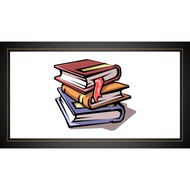
(View Complete Item Description)
Arguments in Context is a comprehensive introduction to critical thinking that covers all the basics in student-friendly language. Intended for use in a semester-long course, the text features classroom-tested examples and exercises that have been chosen to emphasize the relevance and applicability of the subject to everyday life. Three themes are developed as the text proceeds from argument identification and analysis, to the standards and techniques of evaluation: (i) the importance of asking the right questions, (ii) the influence of biases, cognitive illusions, and other psychological factors, and (iii) the ways that social situations and structures can enhance and impoverish our thinking. On this last point, the text includes sustained discussion of disagreement, cooperative dialogue, testimony, trust, and social media. Overall, the text aims to equip readers with a set of tools for working through important decisions and disagreements, and to help them become more careful and active thinkers.
Material Type:
Textbook
Author:
Thaddeus Robinson




















